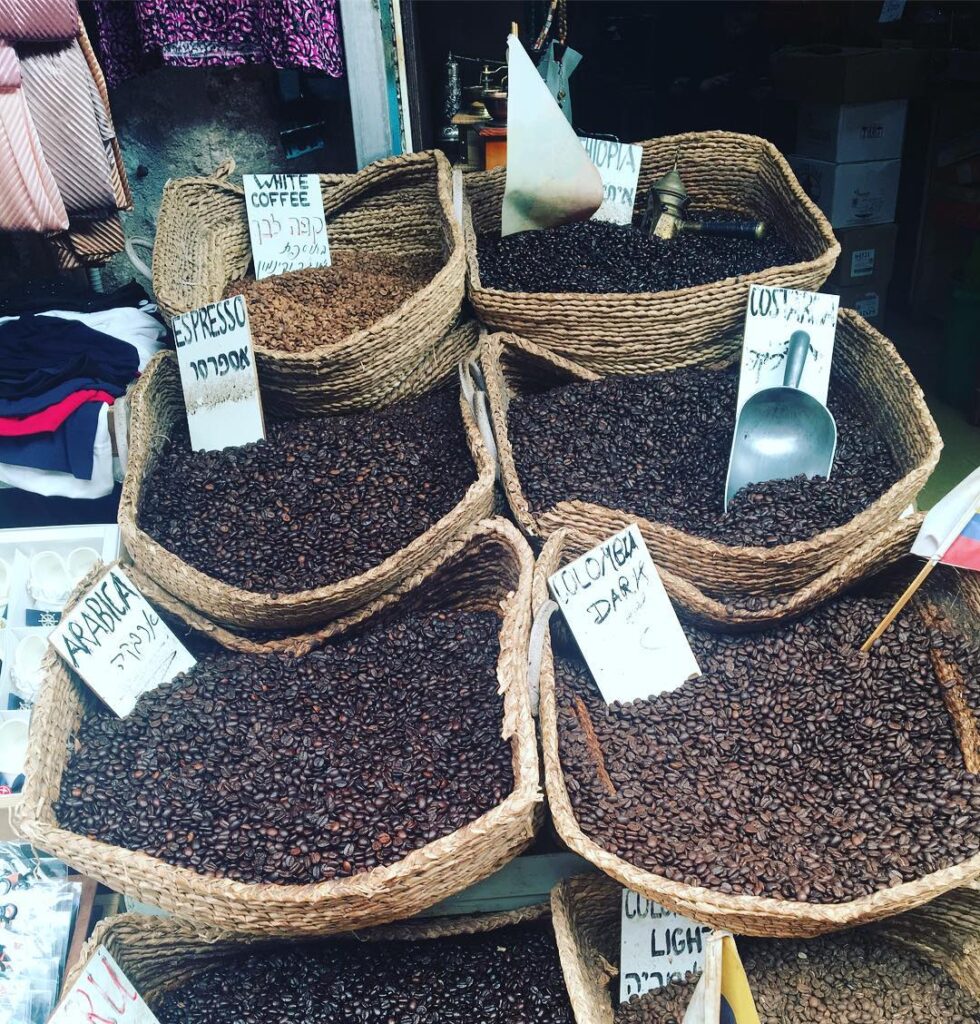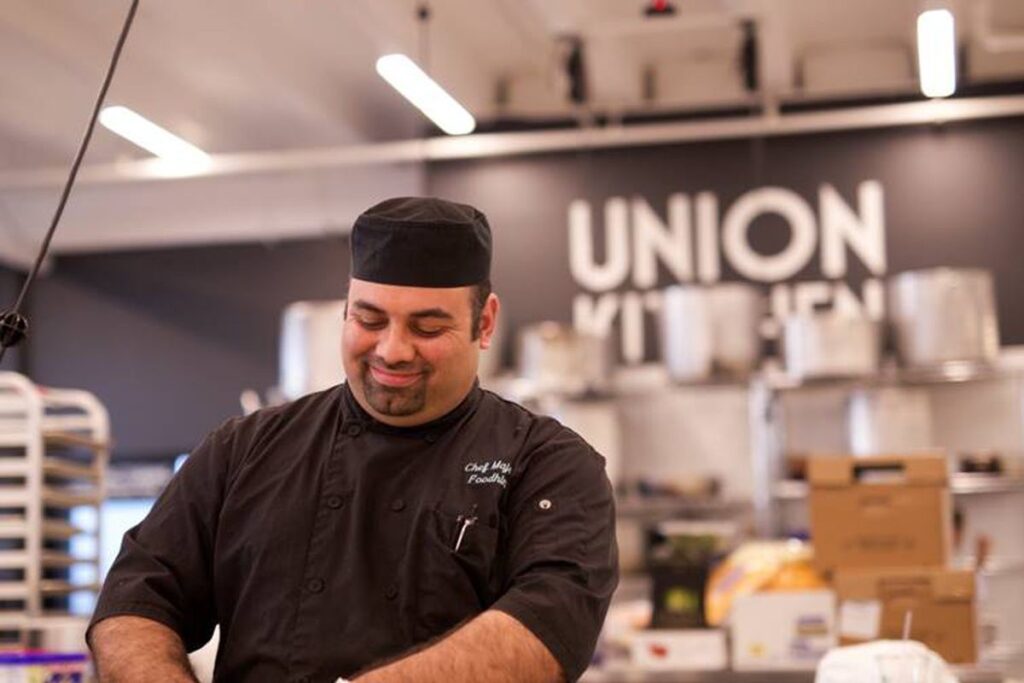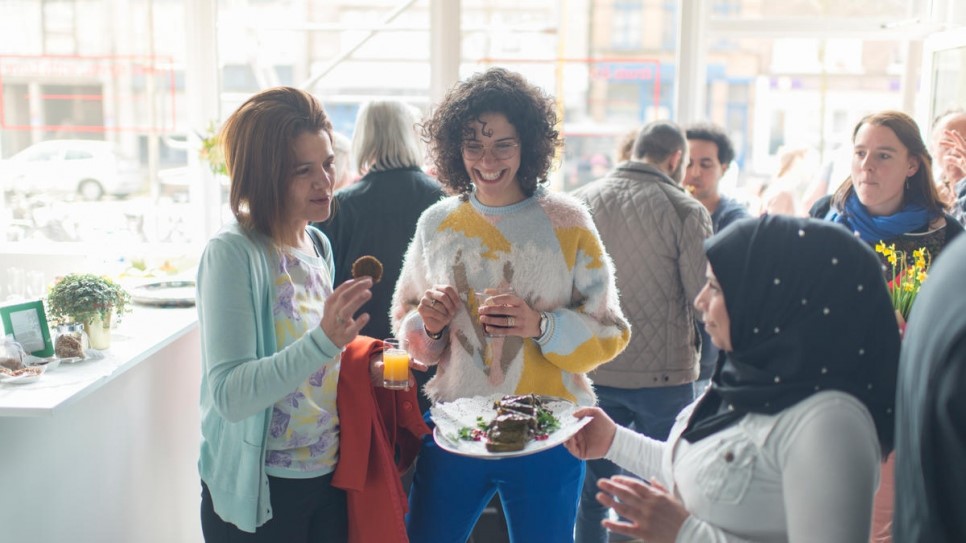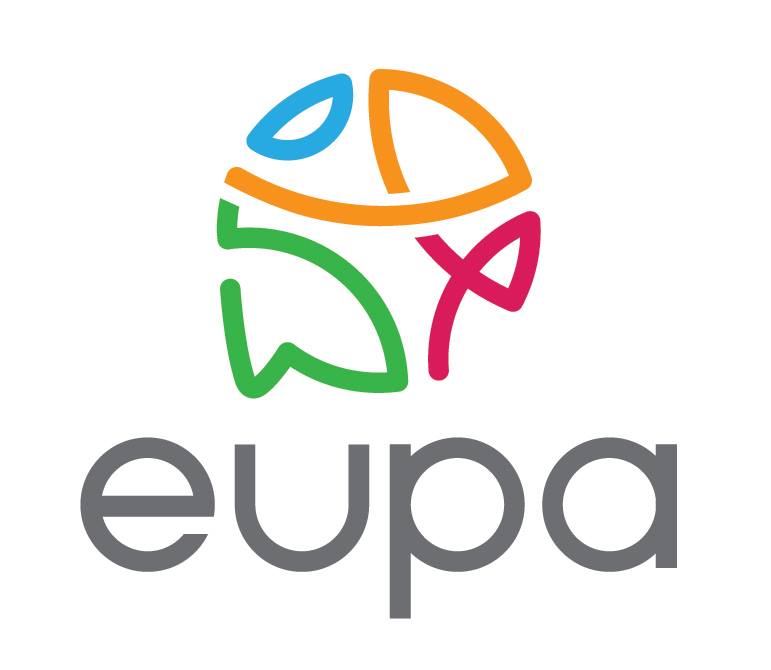With the festive season in full swing food often becomes a central part of many of our lives this month. So, for this week we are exploring positive stories of integration and how food has been instrumental to the integration of migrants, benefiting both the newcomers themselves and the ‘host’ communities they are now integral to.
Image: © Free Enterprise ‘Coffee Outside 734 Coffee’
Manyang Reath Kher was born in Sudan but was made a refugee at just three years old due to the ongoing civil war in the country. Kher then spent the rest of his childhood in refugee camps until, finally, at aged 17 he was able to move to Richmond, Virginia.
No child should have to live a childhood like Kher’s and so when he had graduated from College in the USA, Kher decided to give back both to the community that had welcomed him in Richmond, but also those still living as refugees from Sudan.
Kher founded the coffee shop ‘734 Coffee’ which utilises fair-trade coffee beans from Sudan and Ethiopia with some of the profits from the café going towards providing work and educational opportunities for Sudanese refugees in Africa.
Kher has worked hard to establish this small business and the results has been an ethical and successful new enterprise, popular with locals in Richmond. The project acts a showcase for the power of investment in refugees as a contribution to both their new communities and those from which they were forced to flee, often due to conflict or poverty.
Kher’s story is an inspiring message of solidarity and innovation which highlights the power of a small, creative and migrant led business to bring about social change and refugee integration.
Image: © Whole Foods ‘Majed Abdulraheem preparing food for Foodhini’
Majed Abdulraheem is a chef from Syria who escaped to the USA with his family three years ago due to the bloody war in the region. Abdulraheem now works for ‘Foodhini’, a food business which utilises the skills of refugee cooks to share their cuisine whilst making a living and encouraging a more accepting and positive narrative surrounding refugee integration.
“I like to share my food and my country with people here. This food is my country.”
The popularity of Abdulraheem’s food has made him a hit with locals with many visiting his food stand multiple times a week to chat with him and eat his traditional Syrian dishes. However, the success of the food truck represents more than merely a delicious meal, as in the current somewhat divisive political climate the way Abdulraheem’s Syrian cuisine can unite so many people is also a positive sign of hope and shows how food can bring people together regardless of different backgrounds.
Image: © UNHCR/Colin Delfosse ‘Yara sharing food and conversation in Antwerp’
Our final uplifting story of integration through food comes from Syrian born refugee and entrepreneur Yara Al Adib. Yara’s team of all female refugees in Antwerp, Belgium run a food enterprise which often feeds as many as 800 people at once.
Yara’s dream of social integration through food has been fully realised given the success of her business ‘From Syria With Love’ which has created jobs for many refugees, whilst also creating a sense of family amongst migrants far from home.
“It’s a feeling that you are contributing, it gives you purpose. That makes you feel good, that you’re not just a burden but you can give back somehow.”
The power of sharing a traditional meal should not be underestimated and the beautiful unity this food enterprise has created demonstrates to those sceptical of migrant integration that these communities can, not only integrate, but also bring productive, innovative and imaginative new businesses to the community.
So, this festive season as many of sit together to share meals with friends and family let us celebrate the power of food in encouraging integration and a stronger sense of solidarity, and recognise how migration ultimately enriches the lives of all of us when we choose to work together to integrate and combine different cultures.
If you are interested in the work of MOAS and our partners, please follow us on social media, sign up to our newsletter and share our content. You can also reach out to us any time via [email protected]. If you want to support our operations, please give what you can at www.moas.eu/donate.




